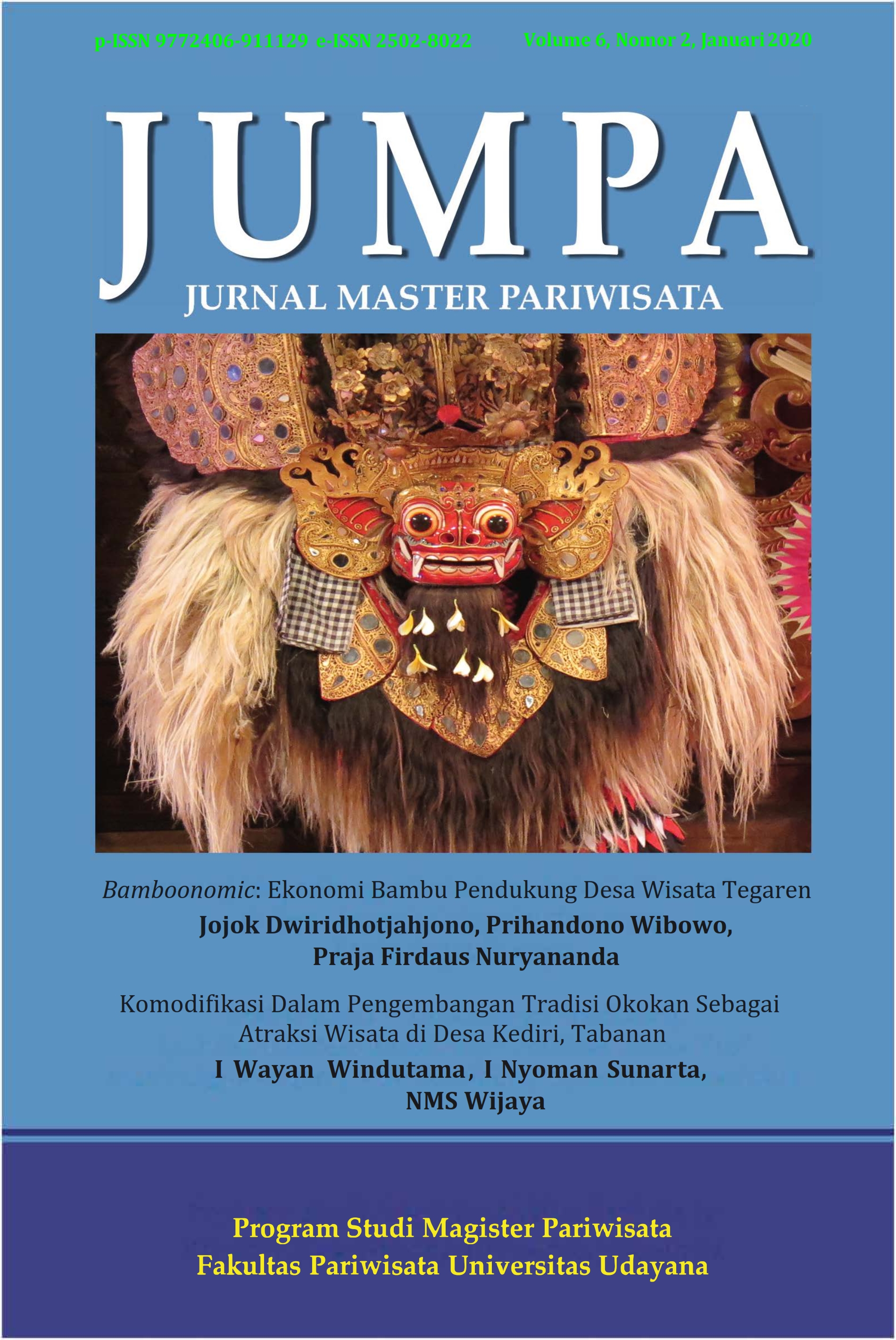Analisis Efisiensi Sumber Daya dan Produksi Bersih di Desa Wisata Pulesari, Sleman, Yogyakarta
Abstract
This study aims to describe the results of the Resource Efficiency and Cleaner Production (RECP) analysis based on the RECP assessment indicators from UNIDO and to give RECP recommendations based on the result of the assessment. The analysis shows that in the management of Desa Wisata Pulesari (Dewi Pule), there are three main activities that uses many resources, namely homestay, Dasa Wisma kitchen and Pendopo. The result says, inefficiencies of energy were found in kitchens and homestays. The use of energy in homestays can be saved by replacing ordinary lamps with LED lights. Efficiency in the kitchen can be done by using magnets on the gas hose and using a healthy energy efficient stove (TSHE) stove. From the results of these recommendations, Dewi Pule has the potential to reduce carbon by 65,279.9 CO2eq kg / year and in terms of economy Dewi Pule has the potential to save a total of IDR 33,412,106 / year. The assessment and application of RECP in a tourism village requires adjustments to the indicators. This is because the character of the resources and energy use in tourism villages is very different from the industries that have implemented the RECP method from UNIDO.
Keywords: Efisiensi Sumberdaya, Produksi Bersih, Desa Wisata, Pulesari














